 Your new post is loading...
 Your new post is loading...
A few months ago, I published a post titled “Why You Can’t Afford $25 Blog Posts,” and it was one of our most popular of all time. As I was writing it, I remember wishing that someone would do a study on what you really get when you buy bargain-basement content. As a certain book says, ask and you shall receive. Last week my friend Lisa Alexander was kind enough to tag me in a post sharing some, yes, actual research on whether you get what you pay for when it comes to content writers. Let’s take a look….
You have greatness in you. Cultivating it often takes role models, mentors, and loads of hard work. This fun quiz will help you find out which famous world leader you most resemble in your writing and may help you find an inspiring role model.
Epic copywriting is an integral part of driving traffic and making conversions. Smashing Magazine even states that “it’s not how can you become a world-class copywriter in a short period of time if you have only minimal experience? It took me 10 years to improve, figuring out these techniques. By practicing them, you’ll be able to improve a lot faster....
Online, your product is unbundled. You get 10 words. Or 8. Or maybe 13, like I used above, to market your work. Digital success is like selling a newspaper story by story rather than day by day or week by week. And in selling that day’s paper, by subscription or newsstand, there’s just less urgency to make the headline awesome on that 150-word story buried at the bottom of page 11. Sections and geographic centers all are comfortable assumptions you can’t make in digital headlines. You must have a certain sense of desperation in writing web headlines, like those eight words are the difference between that column’s or blog’s life or death. Mostly, because it is. You aren’t owed readership. Your headline helps earn it — along with a handful of other factors like author and brand.
So any strategy involving growing and sustaining digital audience must incorporate excellence in headline writing. Must.
A few points to clarify here as we begin. I’ll be discussing writing for readers here, not for search engine optimization. That will be a consideration at times, but mostly we’re talking about people creating headlines for people....
Writing isn’t a talent—it’s a skill. A skill you can develop, refine, and improve.
Becoming a great copywriter isn’t easy, but if you consistently work on your writing, your writing will get better and better.
Here are 33 (count them!) writing tweaks that will propel you to copywriting mastery....
Copywriting is hard. (That’s why everyone says they want to write yet very few actually do.) Creative fear and distraction most often get in the way, which is why it takes inspiration, energy, and discipline to get something good on the page. Luckily, you’re not Thoreau, sequestered in the woods. There are blogs, books, plugins, apps, and a ton of other resources available to help you up your writing game—and we have them all here for you. From style guides to grammar hacks, here are 101 tools to help you be a better writer....
Every now and again someone complies a list of words that need to be kicked to the curb because the list builder claims such words are overused, overblown, and otherwise tired. Sometimes they're right.And other times? They aren't so right, at least not so right for everyone. Some people truly deserve the words that others dismiss as overused or in need of being avoided. Maybe you deserve some too. The real crime seldom has to do with a word being cliche, but rather the author or orator using a phrase or opinion that betrays a lack of original thought — power word and omit lists, inclusive. ...
Whether you're a published author or just getting started with blogging, it's not always easy to string words together in a way that makes sense, sounds good, and makes the reader feel something. But every marketer should be able to write -- and, more importantly, every marketer can write. It's just a matter of finding the writing environment that works best for you, expanding your vocabulary, asking for feedback (and listening to it), and practicing. Luckily, there are a slew of great tools you can use to help improve your writing. Check out the list below, and feel free to add the most helpful ones you use in the comment section....
The blank white screaming screen – it’s a dreadful entity for professionals belonging to any field. Because it’s always hard to start from scratch and take the first step.
As bloggers, meeting your editorial calendar deadlines is of utmost importance. But, once you’ve written blog posts in particular formats, you might find yourself in deep water. You fear that you no longer have a unique and compelling blog post idea to serve your audience.
For keeping your audience engaged, you’ll need to keep an editorial balance. But, lingering on the stressful feeling will only suck up a good amount of your time and energy.
In most cases of this kind of block, you’ll find that the inertia of motion will sail you through. You haven’t lost your ability to produce high-quality and value-adding content. You only need inspiration to come up with new engaging angles.
To help you in the writing cause, I want to share 6 tools and strategies with you....
As marketers, writers and crafters, we spend hours on bringing our content ideas to life and after all that effort, want our content to be seen. Writing powerful social media copy to grab people’s eyes and win their hearts is a challenge, though. And often, when our content isn’t breaking through the noise we can fix it with a few slight edits and tweaks. Editing content and copy is a key part of the creative process but is often overlooked. In this post, I’d love to share 11 editing tips and tricks to help you take your social media content to the next level....
I’m often asked how I wrote Putting Stories to Work. People want to know about the writing process and how I did the research. I had similar questions before I started including, How many words do I need to write? How many chapters should it be? What’s the best word processor? So in this post I want to share with you what I learned.
First let me describe the type of book I wanted to write. First and foremost it was important the book was replete with stories. It’s a capital offence to talk about storytelling and not tell a story. I also wanted it to be a practical book, a bit like David Allen’s How to Get Things Done. It was important that it was research based. I didn’t want to just say, for example, that stories are memorable without pointing to research that backs up my statement. I also wanted to share this research as stories of the experiments. This meant I was on the hunt for experimental research rather than theories. I read a lot of business books and I was inspired by Adam Grant, Malcolm Gladwell, Dan Pink and the Heath brothers, to name a few.
The Challenge is Simple. Day One: 3,000 words. And then each day after that add 1,000 words to the amount needed. Seven days, if my math is right, I will have a 42,000 word novel. 3,000… 4,000… 5,000… 6,000… 7,000… 8,000… 9,000 words. 7 Days. Day Seven (9,000 word day) Got the book done!!!! The goal today was at 9,000 words and needed to be the focus of my day because I had no idea how many words I would actually need to end this book. I had 3,000 words in the bank, so that helped the worry some....
Writing of any sort is hard, but rewarding work – you’ll gain a huge amount of satisfaction from a finished piece. Being creative can also be difficult and challenging at times, but immensely fun. How to get started Many people think that just because they’ve read a lot of stories (or even if they haven’t!) they should be able to write one. But as Nigel Watts writes: There is a common belief that because most of us are literate and fluent, there is no need to serve an apprenticeship if we want to become a successful wordsmith. … That’s what I thought until I tried to write my first novel. I soon learnt that a novel, like a piece of furniture, has its own set of requirements, laws of construction that have to be learnt. Just because I had read plenty of novels didn’t mean I could write one, any more than I could make a chair because I had sat on enough of them.(Nigel Watts, Teach Yourself Writing a Novel)...
|
A short, professional bio is one of those things most people don't think about until, all of a sudden, we've been asked to "shoot one over via email" and have approximately one afternoon to come up with it. That's when we scramble. And when we scramble, our bio ends up reading like this: Rodney Erickson is a content marketing professional at HubSpot, an inbound marketing and sales platform that helps companies attract visitors, convert leads, and close customers. Previously, Rodney worked as a marketing manager for a tech software startup. He graduated with honors from Columbia University with a dual degree in Business Administration and Creative Writing."... Woof, that was dull. Are you still with me? I swear, not even adding a tidbit about his cats would liven that bio up....
Whether you’re trying to become the next top blogger, or just working in an office, writing is a vital key to success (even if it doesn’t seem like it). New research by Harvard has found that writing is one of the most overlooked, yet vital skills in business. Harnessing the power of good writing can accomplish everything from boosting your productivity to improving your leadership (not to mention it will help you create awesome stories). Luckily, there are some ways to easily improve. Stephen King, one of the world’s most successful authors, isn’t shy about sharing the tricks and tools that helped him sell over 350 million books....
Lake Superior State University on New Year's Eve released its its 42nd annual "List of Words Banished from the Queen's English for Mis-use, Over-use and General Uselessness." The university collects nominations all year round on this Facebook pageand releases the word to honor the new year. The word cloud is from the university, showing some of the previously banned words. Previous lists and more information about the project may be found here. The 2017 list and the reasons given by the university: You, Sir: Hails from a more civilized era when duels were the likely outcome of disagreements. Today, we suffer on-line trolls and Internet shaming. Focus: Good word, but overused when concentrate or look at would work fine. See 1983's banishment of, We Must Focus Our Attention. Bête Noire: After consulting a listing of synonyms, we gather this to be a bugbear, pet peeve, bug-boo, pain, or pest to our nominators....
Words are hard. Whether you're a published author or just getting started with blogging, it's not always easy to string words together in a way that makes sense, sounds good, and makes the reader feel something. But every marketer should be able to write -- and, more importantly, every marketer can write. It's just a matter of finding the writing environment that works best for you, expanding your vocabulary, asking for feedback (and listening to it), and practicing. Luckily, there are a slew of great tools you can use to help improve your writing. Check out the list below, and feel free to add the most helpful ones you use in the comment section....
It’s on the tip of your brain. An idea. You think you’re onto something. You’ve figured something out that nobody else realizes. What should you do next? Write an idea treatment. I’ll explain how.
The change you are seeking in business writing varies depending on what you’re writing. For example: - A white paper seeks to change your opinion about a company. - A marketing email seeks to create loyalty or purchases. - Advertising creates a favorable impression toward a brand. - A web page educates you about products and pricing. - Instructions seek to educate you about how to use a product. - A research report gives you insights on how a market is changing. - An email to your boss explains a problem and proposes solutions, changing her priorities. - An email to your staff explains a change in strategy and seeks to modify their behavior. In all these cases, the reader is different — smarter, better informed — as a result of reading. This is the desired change in the reader. As a reader, you might take action (call the company, buy the product, use the product, change your approach to a market, run the company differently, change what you do at work that day). You might not; you might just save the information for later, or use it to support what you were going to do anyway. But if there is no change in the reader, you’ve wasted the reader’s time, violating the Iron Imperative....
Not sure where to start? That’s okay. This article will teach you the fundamentals. You'll learn how to drive audiences to read every word you write. You’ll learn how digital copywriters -- you know, marketers who use words to convert people online -- get and keep the most valuable commodity on the internet: attention. However, in order to command an online reader’s attention, you have to first understand how they read. The answer, of course, is that they’re not reading at all. On the internet, the majority of people are actually skimming. In fact, according to research performed by Jakob Nielsen, of the Nielsen Norman Group, only 16% of people online read word-by-word. Just about everyone else is a scanner, picking text apart for the bits that are valuable to them. Knowing that, there are several ways you can write to make the process easier for people, ensuring that your message is entirely received. Ready to learn a valuable skill?...
Written content plays an important part in just about every small business. Whether it's marketing material, product descriptions, blog posts, or educational articles, that content tells potential customers who you are and what you represent as a business; it solidifies and reiterates your brand.
But it's all too easy to fall into a content-writing rut—especially if you've been writing content for a number of years. If you're producing the same type of material and covering the same topics over and over again, your content may be less effective. Don't worry, though. You can reverse this trend with a few simple tweaks.
In this article, we'll look at six ways that you can improve the quality of your content and keep your readers engaged and interested....
What horror story ingredients are most common in viral creepypastas?
By viral creepypastas, I mean creepypastas with the most shares. I took a sample of 72 the most shared and most discussed creepypastas on four popular creepypasta sites: creepypasta.com, creepypasta.org, the Creepypasta Wiki, and reddit.com/r/creepypasta. I drew the samples from their list of highest rated, most discussed, and featured stories. I noticed that a handful of the same stories were repeated across the different sites, but I will touch on those later on.
After reading probably close to a hundred different creepypasta stories (probably some of the most fun research I’ve ever done), I made a list of a couple of the most common horror story elements found throughout 72 creepypastas. What I found was that all of the creepypastas contained a similar set of seven horror story elements–or, as I’m going to call them, creepypasta “ingredients”–despite being very different stories from one another. Although not every story contained all seven creepypasta ingredients.
Here are the seven ingredients for a popular creepypasta...
We still write as if people will read our work in print, but they don’t — they read on glass screens. As a result, you should include links in everything you write, from emails to reports. It will make your writing shorter and more powerful.
The versatility of links
As a blogger, I use links all the time. Once you realize how versatile they are, you become addicted. How many of these types of links do you use?
- Footnote-type links. A link to an article lets people check what you’re writing or go deeper — and they let you deliver traffic to somebody worth supporting.
- Calls to action. If you’re doing content marketing, you’ll want it to pay off in commerce, subscriptions, or some similar value.
- Internal links to showcase your value. My blog is a network of related content. My links reveal the value I’m trying to deliver.
- Easter eggs. Reward your readers with something fun if they click.
- Intranet links. In internal documents and emails, link to content on your intranet so you don’t have to include it.
- Opposing viewpoints. Links allow you to refer to an argument without getting into it.
- Canned searches. People forget that if you can type it in a browser window, you can put it in a link — including a link to a search.
I know links improve SEO. But I’m about meaning. Include links because they make your writing better — any SEO benefit just a nice plus....
After a while, you get sick and tired of writing. You just want to quit. Is it that notorious condition known as writer’s block? It could be, but in many cases it’s a little bit different. There are a few things going on:You’re bored with what you’re writing about. Boredom kills affection.You’ve exhausted your creative energy. Creativity, like a muscle, has its limits. Push it too hard, and it caves in.You need something more challenging. Lack of challenge -- goals, vision, perspective -- leads to disillusionment. You need some fresh experiences. Fresh experiences will give you a fresh perspective.It’s time to figure out how to get your brain back on task. How do you get past the drudgery and enjoy writing again? Let's talk through a few tips....
Run or hustle? Eat or devour? Move or scurry? You can boost the power of your copy by amping up the quality of verbs you use. Verbs show action, and the way you describe that motion can have a dramatic bearing on your readers. Why would you want to fill your copy with complacent words when you can conjure emotions and visual imagery in the hearts and minds of your readers? Sure, “run” and “hustle” both indicate that someone is moving fast. But “run” is a dull, ordinary verb while “hustle” evokes definite images in your reader’s mind.Hadn’t really thought about it? You should! You can choose commonplace verbs like “talk,” “make,” and “like,” or you can electrify your copy instead with verbs including “chatter,” “discover,” and “adore.” Look at these examples to see what I mean....
|



 Your new post is loading...
Your new post is loading...




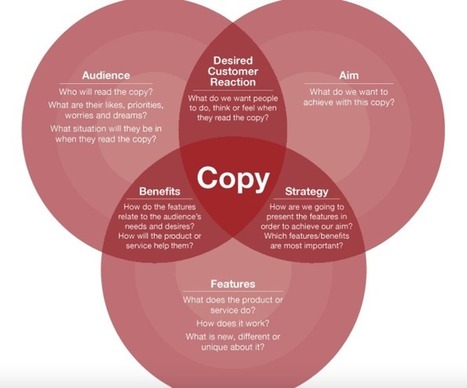
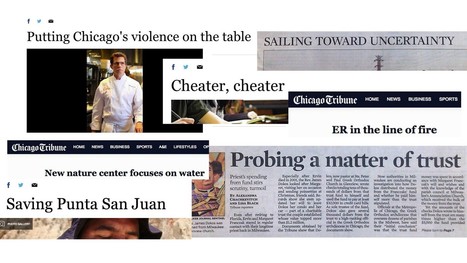







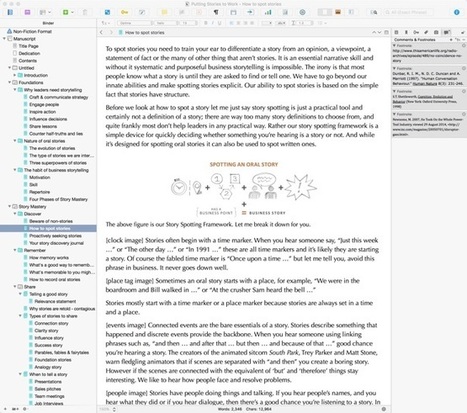
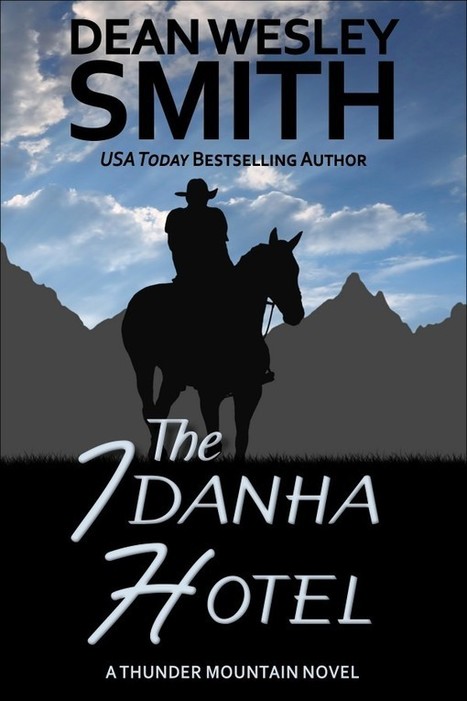








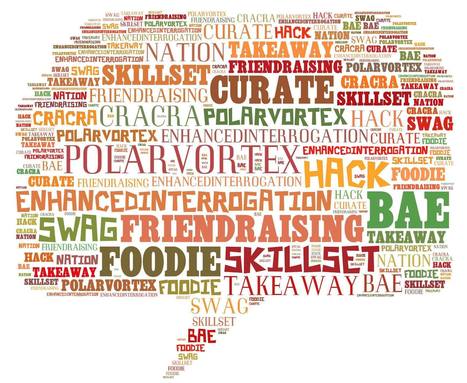
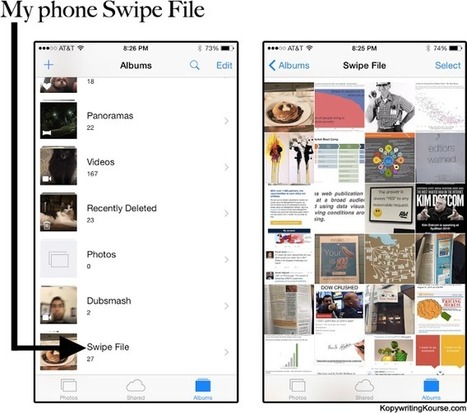






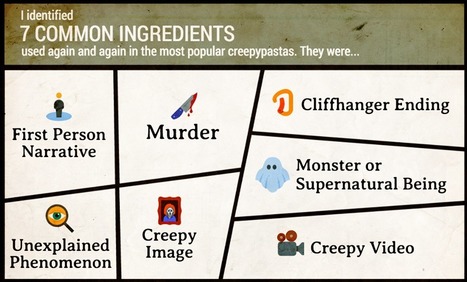











Cheap content is expensive in this experiment.